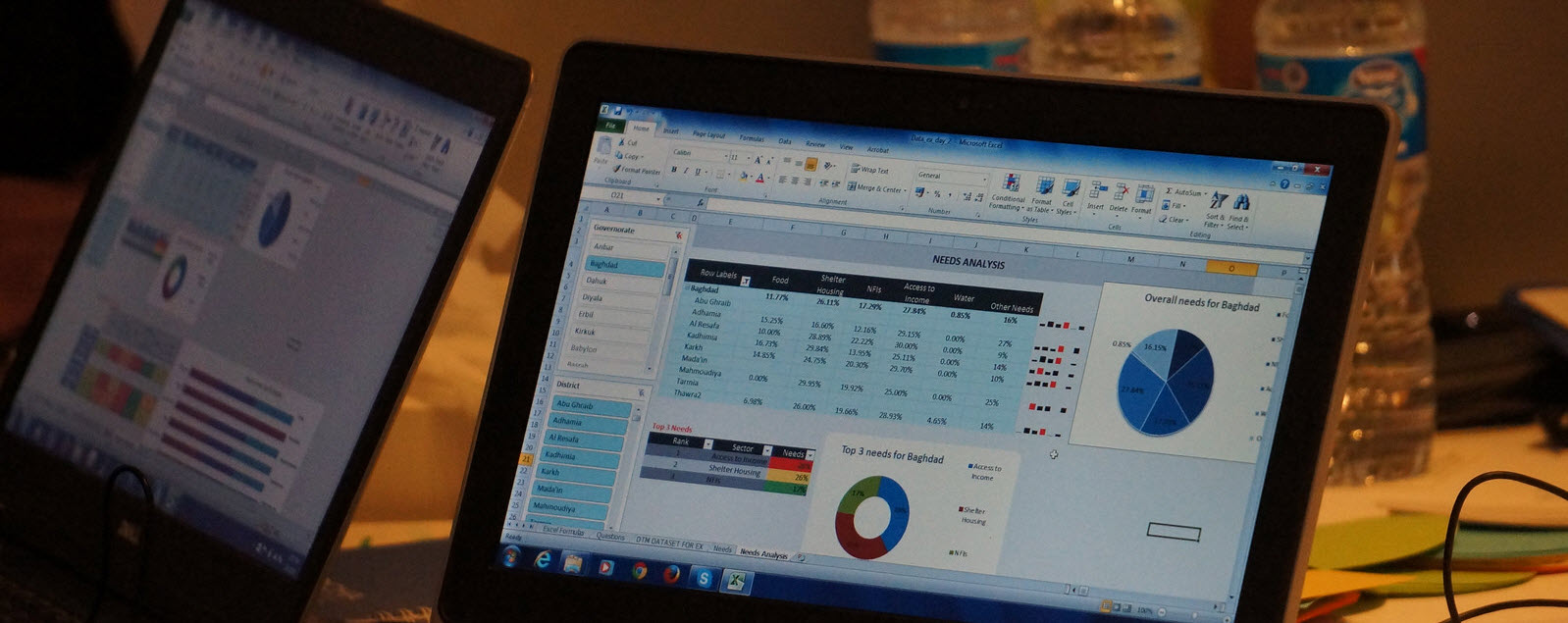
Information Management
OCHA provides information management services to the humanitarian community to inform a rapid, effective, and principled response. It gathers, shares, and uses data and information, underpinning coordination, decision-making, and advocacy.
But how does managing information in a disaster help save lives and reduce suffering?
Managing information during a humanitarian emergency is a crucial part of any operation. The humanitarian community recognizes the importance of gathering reliable data on the locations of those affected, what they urgently need, who is best placed to assist them, and the value of this information for effective and timely humanitarian assistance.
A strong information management network that supports emergency coordination requires processes to collect, analyse and share information about the situation among the various organizations involved, and to ensure the coordination system runs efficiently. OCHA Coordinates this network on behalf of the humanitarian community. It includes focal points from the various sectors of the response and may involve governments, donors and media, as well as representatives of the people affected by the emergency. Information products are then tailored to suit different audiences, often presented in easy-to-use formats, such as maps or tables, to support swift decision-making at all levels.
OCHA offices collect and analyse information to provide an overview of protracted and acute emergencies. OCHA’s information products include maps, graphics, situation reports, humanitarian bulletins and websites. OCHA is also the steward of several humanitarian tools and services that help our partners make better-informed decisions and ensure a more predictable approach to preparedness, early recovery and response. These include ReliefWeb—an award-winning website providing 24-hour coverage of disasters, conflicts and crises for the international aid community, as well as a humanitarianresponse.info an operational platform as well as a resource repository for humanitarians, and HDX, a data sharing platform.
OCHA’s role in information management is unique, differing from the role of other UN agencies or humanitarian actors because it is responsible for consolidating and publishing information across the whole spectrum of humanitarian response so that local and international actors can use the information to make life-saving policy and operational decisions.








